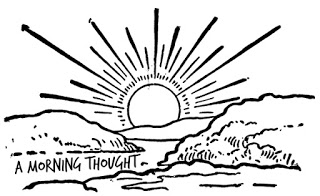Venezuela, Iran and elsewhere were allied to Russia. Lebanon wasn't, but bought top-of-the-range defence equipment to stop Israeli attacks on Beirut. It failed miserably, with Israel easily able to fire missiles at the city.
In fact, quite literally every where top-of-the-range Russian technology has been used to protect locations it has failed comprehensively and catastrophically. The same failure occurred with much of Russia's latest technology in Ukraine. Putin's major modernisation of the Armed Forces in the late 2010s was remarkably unsuccessful. One theory for the failure was that Oligarchs in a notoriously corrupt system (Putin has long been known in Russia as 'Mr Ten Percent' because he expects 10% of contracts to be paid to himself as a bribe - an approach copied by Trump, though he seems to want up to fifty percent to be given to him) took on the task of providing the latest kit and technology, only to provide cheap rubbish while they pocketed the loot.
Among the famous examples were tanks with no spare screws or spare parts, with the spare parts impossible to manufacture in Russia. Russia ended up raiding museums for World War II tanks. At least they knew from World War II and afterwards that they worked. The radios they bought broadcast on open channels, meaning that the Ukrainian military, neighbouring countries, NATO and even members of the public and broadcasters could listen into conversations. The kit supplied was famously substandard, and as was long feature of Russian wars, supply lines failed so comprehensively that Russian soldiers had to kill farm animals, and even rats, to eat as the food supply was intermittent and what was supplied was inedible. (In World War I, the complete breakdown in the supply lines was why the Russian army turned on the Tsar, seizing the Imperial Train and forcing him at gunpoint to abdicate. Catastrophic supply line breakdowns has been a phenomenon of Russian wars back to the Crimean War in the mid-nineteenth century.)
Nor has Putin shown any inclination or ability to rally to the support of Allies. Assad was told "you are on your own!" while a request to the Russian Foreign Minister by Iran for support was greeted with a promise to publicly criticise any US or Israeli attacks. In other words, no actual aid, just words. Then again, bogged down in a four year 'three day special operation' in Ukraine it has been reduced to relying on North Korea for troops, so it has no military to give aid to its allies.
Events in a number of countries show a Russia far weaker than its claims. Its neighbours fear it not from its military but from its history of brutality. Russia is far from the days of strength in the Soviet Union. Indeed, its weakness in Ukraine has shocked not just NATO but China also. They expected a quick defeat for Ukraine, not a weak Russia unable to defeat a smaller country with a far smaller armed forces.
While Russia talks as if it is still a great power, its inability to defend its allies, the failure of so much of its technology, and the far superior tactical skills of Ukraine, suggests that Russia is much weaker than it claims. It is not so much a great power as akin to Austria-Hungary or the Ottoman Empire in World World War I - in other words a great power in severe decline with an impression that it is stronger than it is. The failure of its top-of-the-range technology in Iran, and its inability to cope to its aid, as it was unable to come to aid to Assad, highlights once again that Russia is far weaker than it claims and thinks.
That does not mean it isn't dangerous, but its danger is not in conventional warfare or military technology, but in the area of cyber-warfare and disinformation. It also realises that democracies are highly vulnerable in their exposure with data cables, their reliance in their economy on connectivity, and in the spread of misinformation and disinformation. They are flaws the West needs to fix. It doesn't help that the critical connectivity points in Europe are located in the waters off Ireland, a country drunk on its neutrality delusions and with a barely functioning defence force.
























